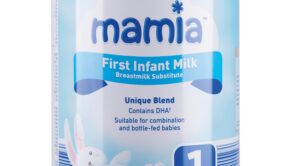In the papers this week 30 Jan – 05 Feb 2010

Aldi's holding company injects €126 million into Irish operations; Centra launches first own-brand TV sponsorship in Ireland; CAI wants labelling rules 'tightened up' for Irish-made goods.
4 February 2010
Filings lodged at the Companies Registration Office show the holding company for Aldi Stores (Ireland) Ltd has injected just over €126 million into its Irish operations since November. The Irish Times reports that last May Aldi announced a €350 million expansion programme in Ireland, saying it planned to open 35 stores over the next three years. The latest available figures show turnover at the discounter’s UK and Irish operations was £2 billion (€2.29 billion) in 2008, up 32% on 2007
Centra has switched its marketing focus to a value message, reports The Irish Times, through a three year sponsorship of Emmerdale on TV3. The €400,000 a year deal will feature “stings” around the programme for its own brand range with 790 lines. Centra will also be introducing a Free Friday promotion where own-brand products will be given away for free every week so shoppers can sample them. According to Centra, research shows it us “starting to differentiate [itself] from the other convenience stores… sales of our packaged own-brand products are growing at over 30% per annum and now represent 17% of overall sales.”
People south of the Border who shop in Northern Ireland should put the savings in a deposit account, which could later be used to visit their children – forced out of Ireland as it declined – in Australia, according to leading economist Jim Power. Speaking at a FSAI food conference this week, Power claimed "Tesco-isation" was the biggest single threat to the food sector, and that stores stocking the same products regardless of where they were in Britain and Ireland was putting suppliers under ‘‘phenomenal’’ pressure. As chairman of Love Irish Food, Power said the campaign was trying to eradicate confusion over what constituted an Irish made product, by only including Irish brands which were at least 80% Irish manufactured.
The Consumers Association of Ireland has warned labelling rules need to be tightened up so consumers can tell what is Irish. Chief executive Dermott Jewell gave examples such as Jacob Fruitfield "Old Time Irish," marmalade which is actually made in the UK and Portugal, and Siucra sugar which is now produced in Germany. He also criticised the "Guaranteed Irish" trademark because it can be applied to products that are only 50% produced in Ireland. However, "Guaranteed Irish" chief executive Tom Rea said this was because many of the ingredients in Irish-labelled goods, such as fruit, cannot be produced here. A spokesperson for Jacob Fruitfield said the name "Old Irish Marmalade" referred to the recipe used.
Wicklow-born Dalton Philips (41) – former boss of Brown Thomas – has been named new chief executive of Morrisons. The Sunday Tribune reports Britain’s fourth-biggest supermarket chain poached Philips from Canadian retailer Loblaw where he has been chief operating officer since 2007. He succeeds Marc Bolland at Morrisons who has jumped ship to join Marks & Spencer as chief executive. While Morrisons didn’t disclose how much Philips will be paid, according to the company’s latest annual report Bolland earned almost €2m in salary, bonuses and pension contributions.
When Dutch-born Marc Bolland, announced he was leaving Morrison’s last November to join Marks & Spencer he earned the moniker the $1 billion man, according to The Irish Times. On the day his appointment was revealed, shares in M&S leapt 6% while Morrisons slid by 5%, a combined swing of £600 million – or $1 billion – in values. Now billion-dollar Bolland has earned himself a £15 million pay deal from his new employer, in an arrangement the paper claims is “lucrative enough to raise eyebrows even in the City, let alone an M&S staffroom.”
Consumers will be able to see how much profit pharmacists are making on over-the-counter drugs, under a new plan by the Minister for Health. The Irish Times reports Mary Harney wants the prices that the state pays for drugs to be listed on medicine packets, so customers can see how much extra they have to pay. It is believed that most pharmacists charge consumers similar amounts to the fees they charge the state for prescriptions under the Drug Payment Scheme. However, a Department of Health source said anecdotal evidence suggested that the recent reduction in state fees was not always passed on.
The Food Safety Authority of Ireland (FSAI) has abandoned plans to adopt UK targets for reducing salt content, following opposition from the food industry. The Irish Times reveals three-quarters of the food manufacturers and retailers consulted expressed opposition to the plan. The food safety watchdog subsequently decided not to introduce targets across all food categories, although it did not announce its decision publicly. It also acknowledged that its target of reducing salt intake from 8g to 6g per person daily by this year will not be reached.
An new €80 million shopping centre under construction in the north Dublin town of Balbriggan, is set to include the largest Tesco store in the Dublin area. The Irish Times reports that Millfield Shopping Centre, which has a total retail area of 17,000sq m (almost 183,000sq ft), is due to open in spring 2011. The centre will benefit from a 952-space and 30 unit shops including the Tesco store which will extend over two internal street levels – its first such configuration in Ireland.
Euro zone retail sales were flat in December despite it traditionally being one of the busiest months of the year, according to new Eurostat figures. The Irish Times reports that in the EU as a whole, retail sales fell by 0.1% during the month. However, food, drinks and tobacco sales actually rose 0.3% in both the euro zone and the EU27. The decline occurred in the non-food sector were sales dropped by 0.2% and 0.3% cent respectively.
The Irish Farmers Association (IFA) has welcomed Tánaiste Mary Coughlan’s commitment to introducing a statutory code of practice and a retail ombudsman, according to The Irish Examiner. Following a meeting with the Tánaiste, IFA president John Bryan, said she recognises the major imbalance of power in the food chain between retailers and processors, suppliers and primary producers. The IFA also proposed the appointment of an independent Supermarket Ombudsman to implement the code.
Some 6,700 full-time workers were made redundant in January – a 62% increase on the December figures, according to the Department of Enterprise, Trade and Employment. The Irish Times reports that according to Ibec group Retail Ireland, declining sales mean employment prospects for the retail sector are a very serious concern. “Unless there is action in this area, as well as pay moderation, more retail staff will join the 30,000 retailer employees who joined the Live Register in 2009,” said Torlach Denihan.
The latest Irish property index by Jones Lang LaSalle shows retail capital values dropped by 24.7% during 2009 and by 4.1% in Q4. The Irish Times reveals the study also shows that rental values for the entire index portfolio fell by 21.8% in 2009 compared to a drop of 0.3% in 2008. Income levels had a marginal decline of 0.8% cent during 2009 but grew by 1.3% in Q4 – suggesting that landlords have moved to re-let vacant premises on short term contracts and have renegotiated new rental terms.



 Print
Print






Fans 0
Followers